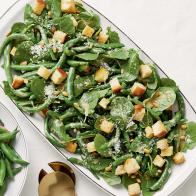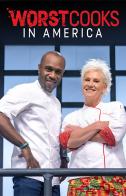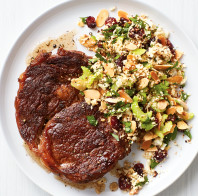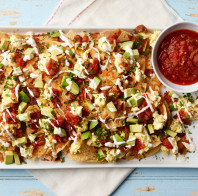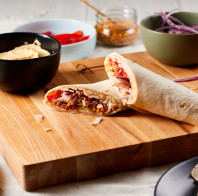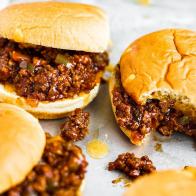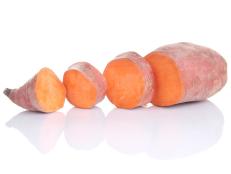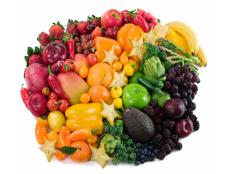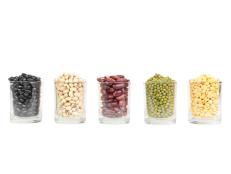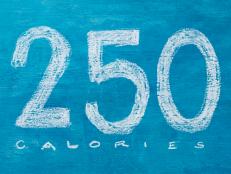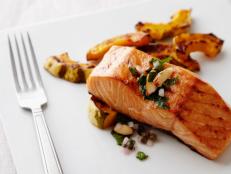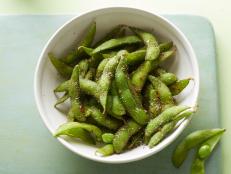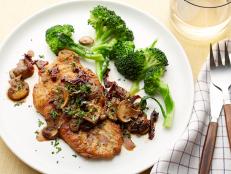Top 12 Healthy Eating Red Flags, According to Nutritionists
If you've adopted some of these not-so-great habits, it might be time to rethink your healthy eating plan.
Related To:
Photo By: Getty Images/AndreyPopov
Photo By: Getty Images/kertlis
Photo By: Getty Images/lauraag
Photo By: Getty Images/makyzz
Photo By: Getty Images/manyakotic
Photo By: Getty Images/LightFieldStudios
Photo By: Getty Images/Domepitipat
Photo By: Getty Images/Noel Hendrickson
Photo By: Getty Images/Deagreez
Photo By: Getty Images
Photo By: Getty Images/istetiana
Photo By: Getty Images/Oscar Wong
Photo By: Getty Images/Peter Dazeley
Watch Out for Nutrition Misinformation
With so much health and nutrition misinformation out there, nutrition pros hear all kinds of claims that are incorrect and some that are downright dangerous. Restriction, elimination and miracle cures are generally not backed up by scientific evidence and really make us cringe. Registered dietitians (RDs) work with patients to support diversity and versatility when it comes to healthy eating. If you find yourself following any of these red flags, it might be time to reevaluate your healthy eating plan and potentially seek the help of an RD, if necessary.
Not Eating After a Specific Time of Day
Many folks believe there is a magical hour when it is no longer healthy to eat, but this really doesn't hold true. Something that always makes Melissa Nieves, LND, RD, MPH cringe is, "I don’t eat anything after 6:00 p.m." "I discuss with my clients the importance of honoring hunger — no matter the hour," Melissa says.
Giving Coconut Oil A Health Halo
Coconut oil is a common dairy-free substitute for butter, but as Colleen Wysocki-Woods, MS, RDN points out, it is not as healthy as some fad diet fans want you to believe. "Using coconut oil in cooking and baking adds 13 grams of saturated fat per tablespoon," explains Colleen. A healthier (also dairy-free) option is canola oil, which has just about 1 gram of saturated fat per tablespoon. Plus, coconut oil in "health" foods can quickly make that food too high in saturated fat to be considered healthy. "Plant-based burgers made with coconut oil can have higher amounts of saturated fat than regular burgers," says Dr. Joan Salge Blake.
Carb Phobia
Probably one of the most common red flags there is eliminating carbohydrates because simply put, you need carbs. "If you eliminate entire food groups like carbs, you're missing out on nutrients like fiber," says Stephanie Ambrose, MS, RDN, LDN, CPT. Fiber is incredibly important in aiding digestion and weight management as fiber promotes the feeling of fullness. Plus, your body uses carbs as energy, especially during exercise.
Slashing Food Groups
Carbs aren't the only nutrient that gets put on the chopping block. "If your 'OK to eat' food list is getting smaller with every meal (not because of an allergy or food intolerance), this only limits your choices robbing you of valuable nutrients your body needs," Cheryl Mussatto MS, RD, LD, author of The Nourished Brain says. For example, cutting out dairy robs your body of calcium to maintain strong bones. And going vegan without the help of a nutritionist can lead to iron deficiency which can lead to fatigue, weakness and pale skin among other symptoms.
Juice Cleanses
Dietitian Megan Byrd speaks for most RDs when she shares her feelings about starvation diets in disguise — aka juice cleanses. "It is physically impossible to cleanse your liver and body by only drinking juice for a few days. You actually end up causing more harm to your body, and wrecking your metabolism by doing so!"
NO Sugar
"One of the biggest bad food habits I've seen is cutting out all added sugar all the time and then doing the same for your kids," says Sarah Pflugradt, MS, RD, CSCS, and author of Live to Eat Well. "It's not a realistic expectation for anyone and definitely not for kids. Staying within the American Heart Association guidelines on added sugar is a healthier approach to limit added sugar and teach kids to do the same."
Demonizing All "Processed" Foods
Jinan Banna helps to debunk a very common myth. "Processed foods have had tons of bad press, but we should note that this is a very broad term and that most foods are processed in some way or another." Affordable, healthy pantry staples like canned tuna, nut butter and even frozen fruit have all been processed in some way. Banna suggests shying away from the less nutritious culprits: "When considering processed foods that may not be good for health, we can focus on those with lots of added salt, saturated fat, added sugar and food additives that have had a lot of the nutrients stripped from them."
Anti-Social Behavior
"One big eating habit red flag is skipping social eating occasions and family dinners," shares Chelsea Jackle, MFN, RDN. "If you find yourself hesitant to eat with others because you fear breaking diet rules or not having full control over what is served, that may be a sign that your eating habits are too rigid. Being flexible can make your eating pattern more sustainable!"
Excessive Swaps
Replacing certain foods and whole meals with shakes or other replacement products is another red flag says Angie Asche MS, RD, CSSD, owner of Eleat Sports Nutrition and author of Fuel Your Body. "If a diet requires you to purchase certain shakes or bars from a supplement company in order to follow an eating plan, it's definitely a red flag," says Asche. "You don't need highly processed powders and packaged snack bars to reach your goal weight, and it likely comes at a pricey expense versus purchasing whole foods!"
Banning White Foods
Sadly several nutrition experts have heard this myth. "'Don't eat white foods' is a diet red flag that is totally misinformed," says Lauren Harris-Pincus, MS, RDN, author of Protein-Packed Breakfast Club. "Some white foods are packed with key nutrients such as potatoes, cauliflower, onions, garlic, mushrooms, parsnips, white beans and yogurt."
Kara Holton, MS, RD, LDN, MCHES has also heard this too many times. "Excuse me? So Skittles are totally healthy, but watch out for those onions and cauliflower? No way! Those blanket statements cause confusion and misinformation passed along between friends, families and communities and feed into the diet culture that foods should be labeled good and bad."
Your Diet Runs Your Life
If you're planning your life around your eating habits you may be headed down a dangerous path. "Of course we need to eat throughout the day, and that's normal and healthy," says Rebecca Clyde MS, RDN, CD. "But if you find yourself missing out on eating with others because your diet doesn't allow for those foods or if you're preoccupied with what you're eating, those are red flags that your eating habits could become disordered."
Harmful Language
"Eating habit red flags include using harmful language to describe one's self or choices such as, 'I was bad today or I know I shouldn't have,'" says integrative dietitian nutritionist, Monique Richard. Perpetual dieting and supplement abuse often accompany these behaviors, according to Richard. If you find yourself in a negative self-talk cycle, consider seeking the help of a licensed therapist or other healthcare professional.


